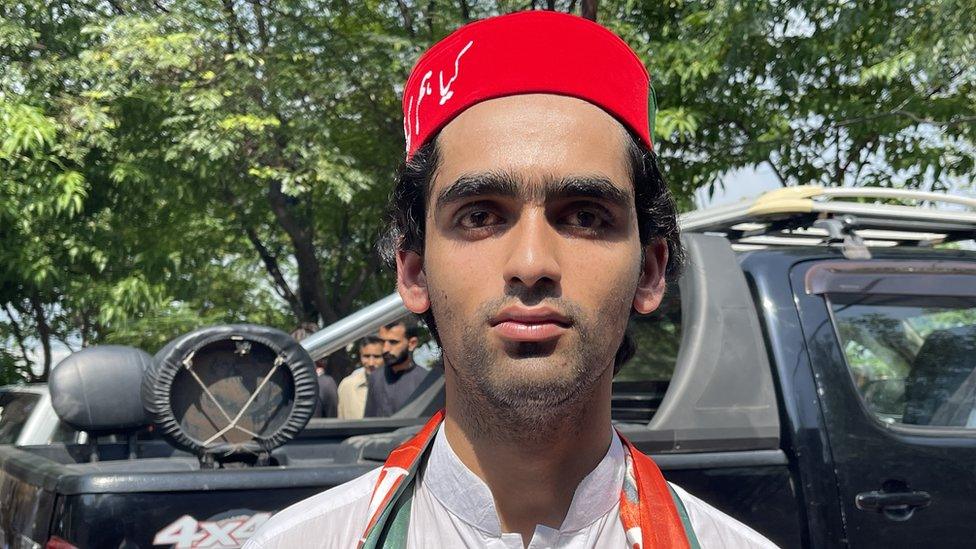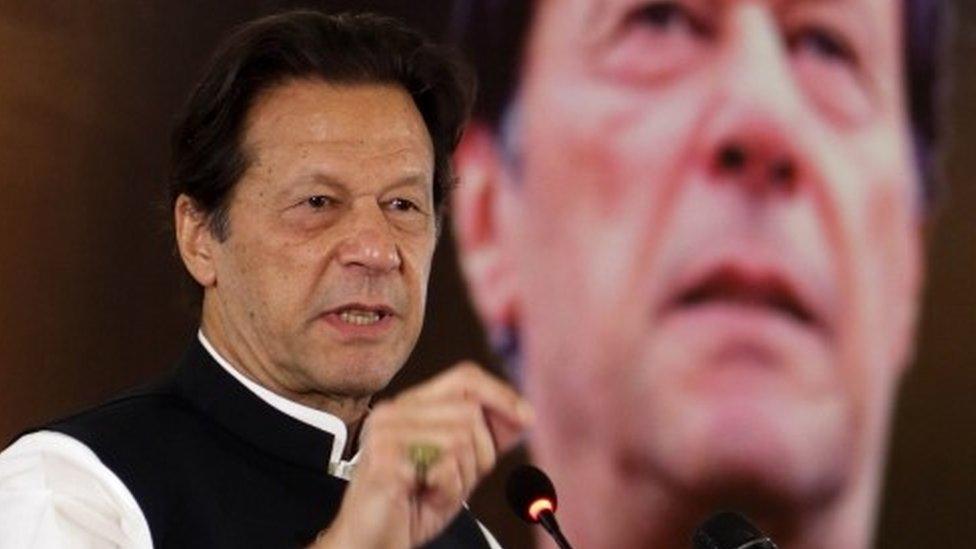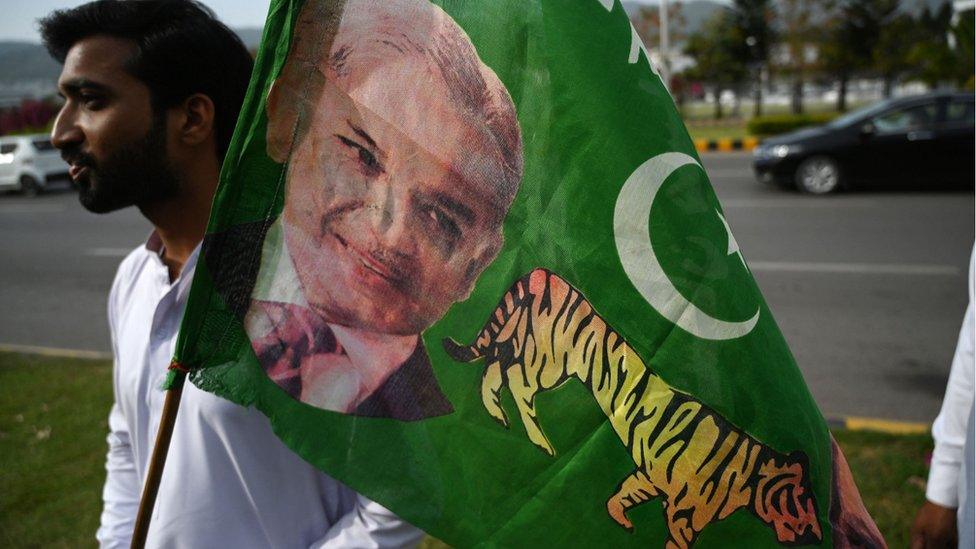Imran Khan: Pakistan police charge ex-PM under terrorism act
- Published
Watch: Imran Khan speaks at protest
Pakistan's police have charged the country's former Prime Minister, Imran Khan, under anti-terror laws.
Their investigation comes after he accused the police and judiciary of detaining and torturing a close aide.
Mr Khan's supporters gathered outside his house vowing to "take over" if he was arrested. However, he has now been granted pre-arrest bail until Thursday.
Since being ousted from power in April, Mr Khan has been a vocal critic of the government and the country's army.
Police announced the charges after the cricketer-turned-politician accused authorities of torturing his close aide, who is himself being detained under sedition charges.
Officials accused Mr Khan of breaching the country's anti-terrorism act for allegedly making threats against the state officials.
Hundreds of the former prime minister's supporters gathered outside his home in Islamabad after news of the investigation broke. Draped in the flags of Mr Khan's party, they have camped out at the gate of his hilltop residence of Bani Gala, chanting and singing in support of the former leader.
It is not known if he is at home, and he is yet to address the latest charge.
Mr Khan's political allies warned on Monday that arresting the ousted leader would be crossing a "red line".
"If Imran Khan is arrested... we will take over Islamabad," tweeted a former minister in Mr Khan's cabinet, Ali Amin Gandapur.
Islamabad's High Court approved the three-day protective bail, but directed him towards an anti-terrorism court saying it was the appropriate forum to address the issue.
The case comes at a time of heightened tension between Pakistan's government and Mr Khan, who was ousted from power in April in a no-confidence vote.
Since then, the former leader has toured the country to deliver a series of fiery speeches calling for fresh elections and fiercely criticising both the government and the army.
Despite his ousting, Imran Khan continues to count on the support of many Pakistani voters.
Last month, his PTI party stunned rivals by taking control of a crucial provincial assembly in Punjab, defeating the PML-N party in what was expected to be an easy win for them.
Many saw July's by-election victory as a signal of Mr Khan's continued popularity at the ballot box - and a foretaste of what could happen if the early elections that he is seeking were to be held.
The charismatic politician was elected prime minister in 2018, but fell out with Pakistan's powerful army towards the end of his tenure. After a series of defections, he lost his majority in parliament.

Political win could lead to civil unrest
By Pumza Fihlani, BBC News Islamabad
The so-called Imran Khan versus the government fight is coming to a head. As tensions continue to rise, there are concerns within the coalition government that the terrorism charges against the former prime minister have the potential to not only create political instability but also to lead to civil unrest. Some within the government worry this is too high a price to pay.
It's one of a handful of times the new government has been divided over their stance on Mr Khan, government insiders have told the BBC. Since being ousted in April, the cricketer-turned-politician has been vocal in his criticism of the government as well as the military - accusing them of a political witch hunt.
Here's where the concern comes in, though: Mr Khan has a huge support base - in the hundreds of thousands - and when you speak to his followers, they'll tell you he is being persecuted, a victim of a corrupt system. There has been no proof of this political witch hunt, but that hasn't stopped party loyalists from believing it.

You may also be interested in:
Watch: The BBC's Secunder Kermani went to a rally in April in Lahore, where Mr Khan was still drawing crowds of thousands
Related topics
- Published22 August 2022

- Published18 July 2022

- Published11 April 2022
